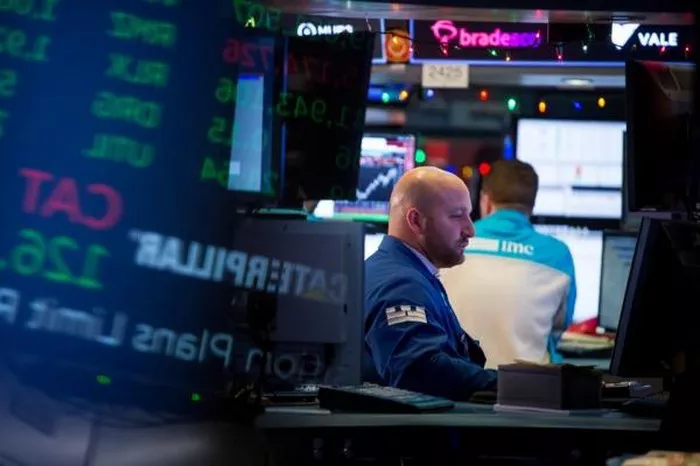Futures trading has been a fundamental component of the global financial markets for centuries, offering opportunities for speculation, risk management, and investment. However, in the context of Islamic finance, the permissibility of futures trading is a subject of debate and scrutiny.
Understanding Futures Trading
Futures trading involves entering into contracts to buy or sell an underlying asset (such as commodities, currencies, or financial instruments) at a predetermined price on a future date. These contracts, known as futures contracts, derive their value from the underlying asset’s price movements. Futures trading serves various purposes, including hedging against price fluctuations and speculating on future price changes.
The Permissibility Criteria in Islamic Finance
Islamic finance operates under the principles of Shariah law, which emphasize ethical and moral standards in financial transactions. To determine whether futures trading is halal (permissible) or haram (forbidden) in Islamic finance, several criteria are considered:
1. Riba (Usury) Prohibition
Islamic finance strictly prohibits the earning or payment of interest (riba). Trading activities that involve interest-bearing transactions are deemed haram. Futures contracts often involve interest payments because they are leveraged instruments where traders can control a large position with a relatively small initial investment. However, there are interest-free Islamic futures contracts designed to comply with Shariah principles.
2. Gharar (Excessive Uncertainty) Avoidance
Islamic finance discourages excessive uncertainty or gharar in contracts. A futures contract‘s terms and conditions, including the price and date of delivery, must be clear and unambiguous. Ambiguity in contract terms can render a futures contract haram.
3. Speculation vs. Hedging
Islamic finance distinguishes between speculation and hedging. Speculative trading with no underlying economic purpose is generally considered haram. Hedging, which involves risk management and protection against price fluctuations, is more likely to be permissible. However, the line between speculation and hedging can sometimes be blurred.
4. Real Economic Activity
Islamic finance emphasizes engaging in real economic activities that contribute to the welfare of society. Trading in futures contracts tied to physical assets or commodities aligns with this principle, as it involves the exchange of real goods. Conversely, purely financial futures trading with no physical backing may raise ethical concerns.
Permissibility of Futures Trading in Islamic Finance
The permissibility of futures trading in Islamic finance hinges on whether the specific futures contract adheres to Shariah principles. In practice, scholars and financial institutions have developed Islamic futures contracts that comply with these principles. Some key considerations include:
1. Sukuk Al-Ijarah
Sukuk Al-Ijarah is an Islamic financial instrument that resembles traditional futures trading. It involves the issuance of sukuk (Islamic bonds) representing ownership in an underlying asset, such as real estate or infrastructure. These sukuk are structured to pay periodic returns based on the performance of the underlying asset. Sukuk Al-Ijarah aligns with Islamic finance principles by linking returns to real economic activities.
2. Commodity Murabahah
Commodity Murabahah is a type of Islamic futures contract used in commodity trading. In this arrangement, a financial institution buys a commodity on behalf of a client and sells it to the client at a markup. The markup represents the profit earned by the institution. This structure avoids riba by ensuring that profits are generated from the actual sale of goods rather than interest.
3. Shariah-Compliant Indices
Islamic finance has introduced Shariah-compliant stock market indices, such as the Dow Jones Islamic Market Index and FTSE Shariah Global Equity Index. These indices exclude companies engaged in non-compliant activities, such as alcohol, gambling, or pork, making them suitable for Islamic investors who want exposure to futures trading tied to equities.
4. Murabahah-based Equities Futures
Some financial institutions offer murabahah-based equities futures contracts. These contracts facilitate trading in shares of companies while adhering to Islamic finance principles. The murabahah structure allows for the lawful exchange of ownership and profit.
Challenges and Controversies
Despite the efforts to develop Shariah-compliant futures contracts, challenges and controversies persist within the Islamic finance community. Some of these challenges include:
1. Complex Financial Structures
Islamic finance instruments designed to mimic futures trading can sometimes involve complex structures that may not align with the simplicity and transparency emphasized by Shariah principles.
2. Ambiguity in Contracts
Ambiguity or gharar in contract terms remains a contentious issue in Islamic finance. Ensuring the clarity and certainty of futures contracts can be challenging, especially when complex financial instruments are involved.
3. Differing Interpretations
Islamic finance scholars and authorities may have varying interpretations of Shariah principles, leading to differences in their rulings on the permissibility of certain futures contracts.
Conclusion
The permissibility of futures trading in Islamic finance is a complex and evolving issue. While traditional futures trading may raise concerns about riba and excessive uncertainty, Islamic finance has sought to develop alternative futures contracts that align with Shariah principles. These efforts include the creation of sukuk, commodity Murabahah, Shariah-compliant indices, and murabahah-based equities futures. However, challenges related to complex financial structures and differing interpretations of Shariah principles persist.
Ultimately, individuals and institutions engaged in Islamic finance should seek guidance from qualified Shariah scholars and financial experts to ensure that their futures trading activities comply with the ethical and moral standards of Islamic finance. The permissibility of futures trading in Islamic finance is subject to ongoing debate and development, reflecting the dynamic nature of the field.


